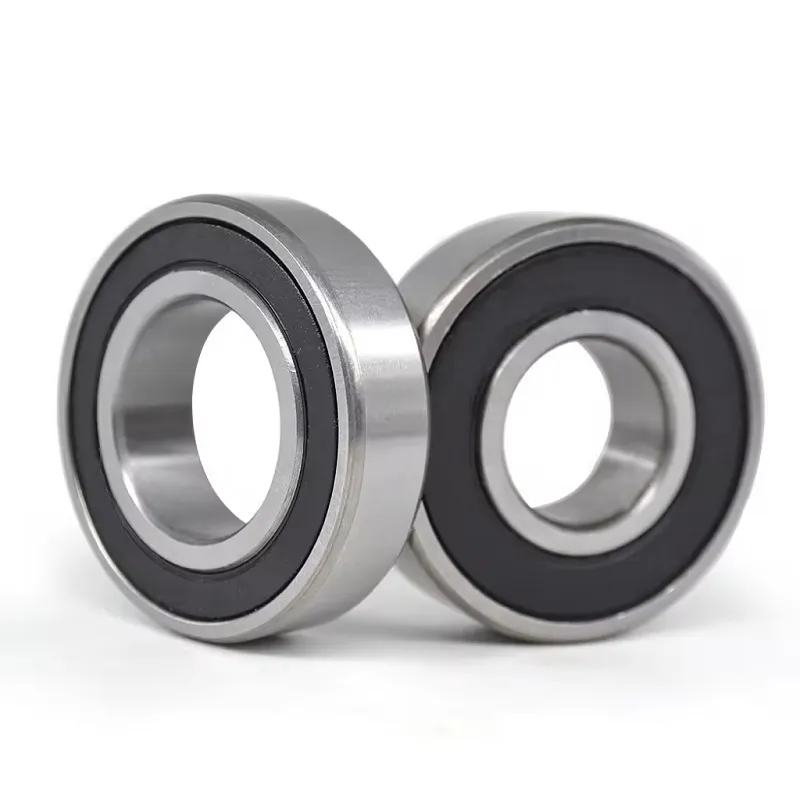Dec . 04, 2024 10:31 Back to list
Affordable Custom Deep Groove Ball Bearings for Your Machine Needs
Understanding the Price Factors of Custom Deep Groove Ball Bearings
Deep groove ball bearings are essential components in numerous mechanical systems, providing low friction and high-speed performance. As industries advance, the demand for custom deep groove ball bearings has surged, catering to specific requirements like load capacity, size, and material. One of the most frequent inquiries in this domain is the price of these specialized bearings. Understanding the factors that influence these prices can help businesses make informed decisions when sourcing their components.
1. Material Composition
The material used in manufacturing deep groove ball bearings significantly affects their price. Common materials include carbon steel, stainless steel, and hybrid combinations. Stainless steel offers excellent corrosion resistance, making it ideal for applications in harsh environments. Although these materials increase the production cost, investing in high-quality materials often leads to longer-lasting performance and reduced maintenance costs. Therefore, when calculating the price, organizations must consider the trade-off between initial investment and long-term durability.
2. Size and Specifications
Custom deep groove ball bearings come in various sizes and specifications, catering to the diverse needs of different applications. The dimensions, tolerance levels, and load ratings directly impact the production complexity and price. Larger bearings or those with precise tolerances often require more advanced manufacturing processes, thus driving up costs. When ordering custom solutions, buyers should clearly define their requirements, as more intricate designs typically lead to higher prices.
The quantity of bearings ordered also plays a crucial role in pricing. Generally, bulk orders benefit from economies of scale, leading to lower per-unit costs. Manufacturers often offer discounts for large quantities, which can significantly reduce overall expenditure. However, for small-scale projects or prototypes, companies might pay a premium for the limited production runs. Therefore, strategic planning regarding order size can optimize budget allocation.
custom deep groove ball bearing price

4. Technology and Manufacturing Processes
The technology employed in the manufacturing of custom deep groove ball bearings is another determining factor for pricing. Advanced production techniques like automation and CNC machining can enhance precision and efficiency but may come at a higher initial cost. Additionally, some manufacturers may integrate innovative technologies to improve the bearing's performance characteristics, which can also raise the price. It is essential for businesses to weigh the benefits of high-tech production against their budget constraints.
5. Supplier Reputation and Location
The choice of supplier significantly influences the pricing structure of custom bearings. Established suppliers with a strong reputation for quality and service may charge more, yet their experience often translates to better reliability and performance. Furthermore, suppliers located in regions with higher labor and production costs may impose steeper prices. Conversely, sourcing from areas with lower overhead can result in cost savings. However, companies should prioritize quality over price to avoid potential issues related to inferior products.
6. Market Demand and Economic Conditions
Lastly, the broader market conditions and demands can influence pricing trends for custom deep groove ball bearings. Fluctuations in raw material costs, transportation expenses, and overall economic conditions can lead to changes in bearing prices. Additionally, a surge in demand for specific types of bearings may create temporary price increases, requiring businesses to stay informed on market trends to make cost-effective purchasing decisions.
Conclusion
The price of custom deep groove ball bearings is influenced by a myriad of factors, including material composition, size and specifications, production volume, technology used, supplier choices, and market dynamics. Understanding these elements allows companies to better navigate the complex landscape of bearing procurement. Ultimately, while price is a crucial consideration, it should not overshadow the importance of quality and performance—investing in the right bearings can lead to operational efficiency and long-term savings. As industries continue to evolve, monitoring these aspects will be essential for any business looking to optimize their use of custom deep groove ball bearings.
Latest news
-
25MM 2 BOLT UCFLX05-14 Flange bearing unit( oval)
NewsMar.07,2025
-
4 bolt UCF 200 series Pillow block bearings
NewsMar.07,2025
-
25MM 2 BOLT UCFLX05-14 Flange bearing unit( oval)
NewsMar.07,2025
-
UCF216-50 4-Bolt Flange Housing Square Bearing
NewsMar.07,2025
-
25MM 2 BOLT UCFLX05-14 Flange bearing unit( oval)
NewsMar.07,2025
-
spherical roller bearing material exporter
NewsMar.07,2025





